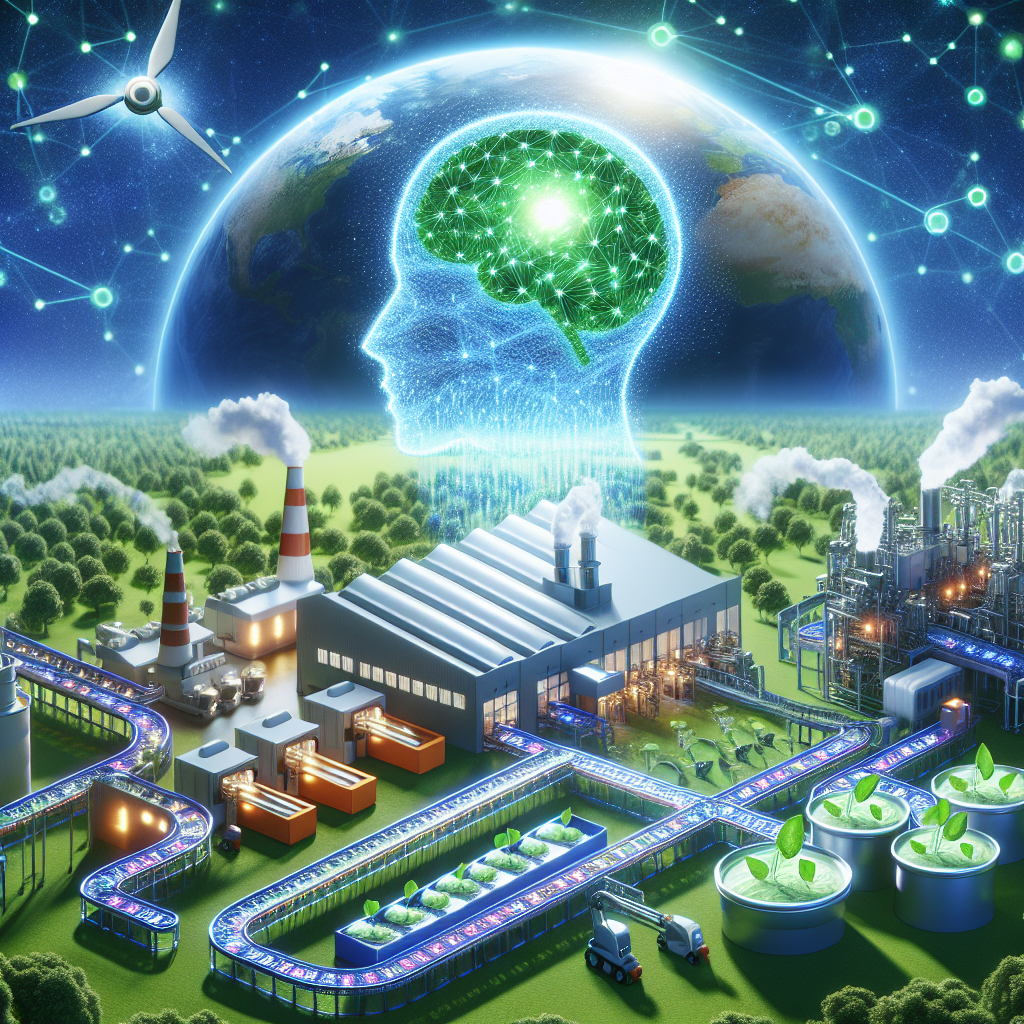The Role of AI in Sustainable Manufacturing Practices
With the increasing focus on sustainability and reducing environmental impact, industries around the world are looking for ways to incorporate more sustainable practices into their operations. One area where significant progress is being made is in the field of manufacturing, with the help of artificial intelligence (AI). AI technologies are revolutionizing the way manufacturers operate, allowing them to streamline processes, reduce waste, and minimize their carbon footprint. In this article, we will explore the role of AI in sustainable manufacturing practices and how it is helping to create a more environmentally friendly industry.
What is Sustainable Manufacturing?
Sustainable manufacturing is the process of producing goods in a way that minimizes negative environmental impact, conserves natural resources, and promotes social responsibility. This includes reducing energy consumption, minimizing waste generation, and using eco-friendly materials and processes. Sustainable manufacturing aims to create products that are environmentally friendly, socially responsible, and economically viable.
The Role of AI in Sustainable Manufacturing
AI technologies are playing a crucial role in helping manufacturers achieve sustainability goals by optimizing processes, reducing waste, and improving efficiency. Here are some ways in which AI is being used in sustainable manufacturing practices:
1. Predictive Maintenance: AI-powered predictive maintenance systems can help manufacturers identify potential equipment failures before they occur, allowing them to schedule maintenance proactively and prevent costly downtime. By reducing unplanned maintenance and improving equipment reliability, manufacturers can minimize waste and energy consumption.
2. Energy Management: AI systems can analyze energy consumption data in real-time and identify opportunities for energy savings. By optimizing energy usage and reducing waste, manufacturers can lower their carbon footprint and cut costs.
3. Waste Reduction: AI technologies can help manufacturers analyze production processes and identify areas where waste can be minimized. By optimizing production processes and reducing waste generation, manufacturers can improve efficiency and reduce their environmental impact.
4. Supply Chain Optimization: AI-powered supply chain optimization tools can help manufacturers streamline logistics and transportation processes, reducing fuel consumption and emissions. By optimizing supply chain operations, manufacturers can reduce their carbon footprint and improve sustainability.
5. Product Design: AI can help manufacturers design products that are more sustainable by analyzing materials, processes, and end-of-life considerations. By incorporating sustainability considerations into the product design process, manufacturers can create products that are eco-friendly and easy to recycle or dispose of.
6. Quality Control: AI-powered quality control systems can help manufacturers identify defects and errors in real-time, allowing them to reduce waste and improve product quality. By ensuring that products meet quality standards, manufacturers can minimize defects and waste generation.
FAQs
Q: How can AI help manufacturers reduce waste?
A: AI technologies can help manufacturers analyze production processes and identify areas where waste can be minimized. By optimizing production processes and reducing waste generation, manufacturers can improve efficiency and reduce their environmental impact.
Q: What are some examples of AI applications in sustainable manufacturing?
A: Some examples of AI applications in sustainable manufacturing include predictive maintenance, energy management, waste reduction, supply chain optimization, product design, and quality control.
Q: How can AI help manufacturers improve energy efficiency?
A: AI systems can analyze energy consumption data in real-time and identify opportunities for energy savings. By optimizing energy usage and reducing waste, manufacturers can lower their carbon footprint and cut costs.
Q: What are the benefits of using AI in sustainable manufacturing practices?
A: The benefits of using AI in sustainable manufacturing practices include improved efficiency, reduced waste, lower energy consumption, and minimized environmental impact. AI technologies can help manufacturers achieve sustainability goals and create a more environmentally friendly industry.
In conclusion, AI technologies are playing a crucial role in helping manufacturers achieve sustainability goals by optimizing processes, reducing waste, and improving efficiency. By incorporating AI into their operations, manufacturers can create products that are environmentally friendly, socially responsible, and economically viable. With the help of AI, sustainable manufacturing practices are becoming more accessible and achievable, paving the way for a greener and more sustainable future.

